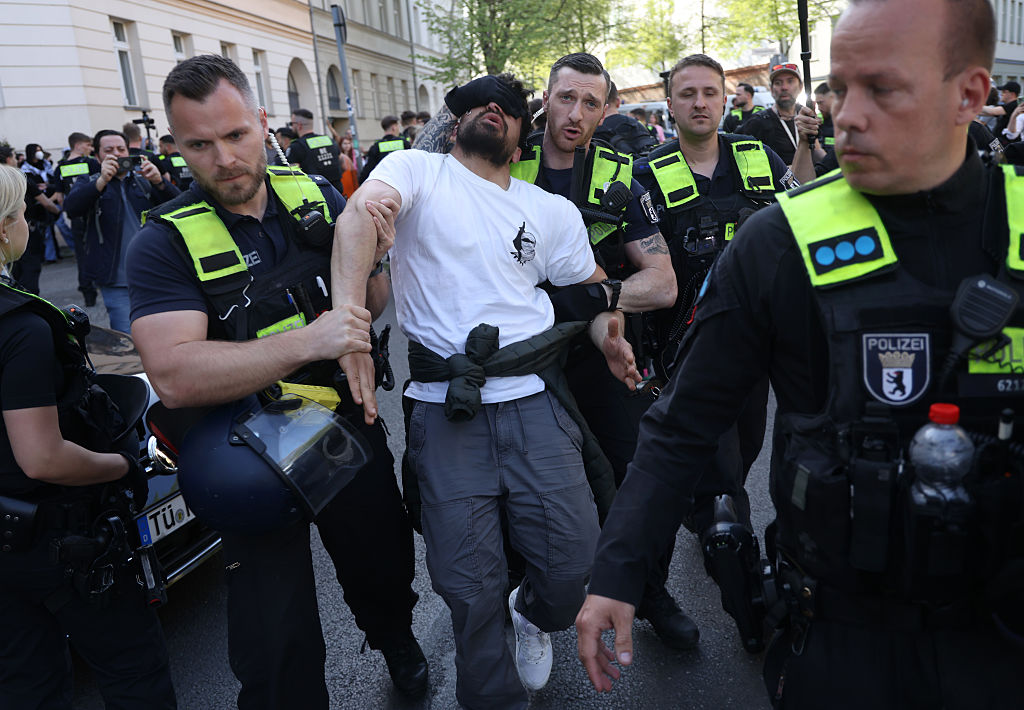Anti-Semitic incidents – ranging from derogatory remarks to brutal physical violence and arson – soared to almost 9,000 in Germany last year.
In 2024, the Federal Association of Departments for Research and Information on Anti-Semitism (RIAS), an NGO documenting violence against Jews, registered 8,627 cases of anti- Semitic occurrences.
That represented an increase of 77 per cent compared to 2023. On average, 24 anti-Semitic acts were documented every day.
Felix Klein, Federal Government Commissioner for Jewish Life in Germany and the Fight against Anti-Semitism, said the practice had reached “a shamefully high level” in the country.
In its annual report on anti-Semitism, presented on June 4 in Berlin, RIAS attributed the rise in anti-Jewish tendencies to the October 7, 2023 attacks by Palestinian terror group Hamas – in which more than 1,300 Israelis were murdered and more than 200 taken hostage – and the subsequent war in Gaza.
Around two thirds of the recorded incidents were “Israel-related”, the authors wrote. There was also no sign that anti-Semitic acts decreased as the year 2024 progressed.
Benjamin Steinitz, managing director of RIAS, founded in 2018, said that never had his organisation been informed of more attacks on Jews before.
He quoted a Jewish mother of two who told him: ”All strategies to deal with everyday anti-Semitism which we have come up with have ceased to work since October 7.”
Steinitz criticised what he said was the fact that German Jews were regularly being blamed for the actions of the Israeli Government.
“Even just showing your Jewish identity in public can lead to violent attacks,” he said.
The 8,627 documented cases comprised eight “incidents of extreme violence”, 186 attacks, 443 damages to property, 300 threats and more than 7,500 cases of “insulting behaviour”.
Anti-Semitism was especially prevalent at German universities where the number of cases more than tripled to 450 cases, the report said.
In one of the most brutal attacks, a Jewish student was viciously beaten by “Mustafa A”, a young Palestinian man, in a Berlin bar.
Shapira had to undergo multiple surgeries to reconstruct his face. In April 2025, Mustafa A was sentenced to three years in prison for battery.
In the RIAS report, only 2 per cent of anti-Semitic incidents were attributed to a “Islamic/Islamist background”.
About a quarter of the cases, though, were categorised as having a “political background” with said background being predominantly “leftist-anti-imperialist” or “Islamist/Islamic”, the RIAS wrote.
In the the majority of cases (57 per cent) a categorisation was not possible, it said.
Also on June 4, Martin Trefzer, a State MP from the right-wing AfD party in Berlin, published the results of an inquiry he sent to the Berlin city government.
Trefzer’s data showed that the number of anti-Semitic crimes in Berlin more than doubled in 2024 to 1,823 cases – most of which comprised property damage (379 cases), incitement (525 cases) and displaying signs of forbidden organisations such as swastikas (587 cases).
The number of violent attacks decreased slightly from 72 to 67 cases.
Approximately 60 per cent of the criminal acts were attributed to the category “foreign ideology”, another 19 per cent to “religious ideology”. Sixteen per cent of the cases are deemed “right-wing extremist”, although any cases that could not be clearly assigned to a different category was counted as right-wing extremist.
Trefzer urged the Berlin city government to take action against anti-Semitism, saying: “The unholy alliance of Islamist and left-wing extremist Jew-haters must finally be adequately addressed.”





